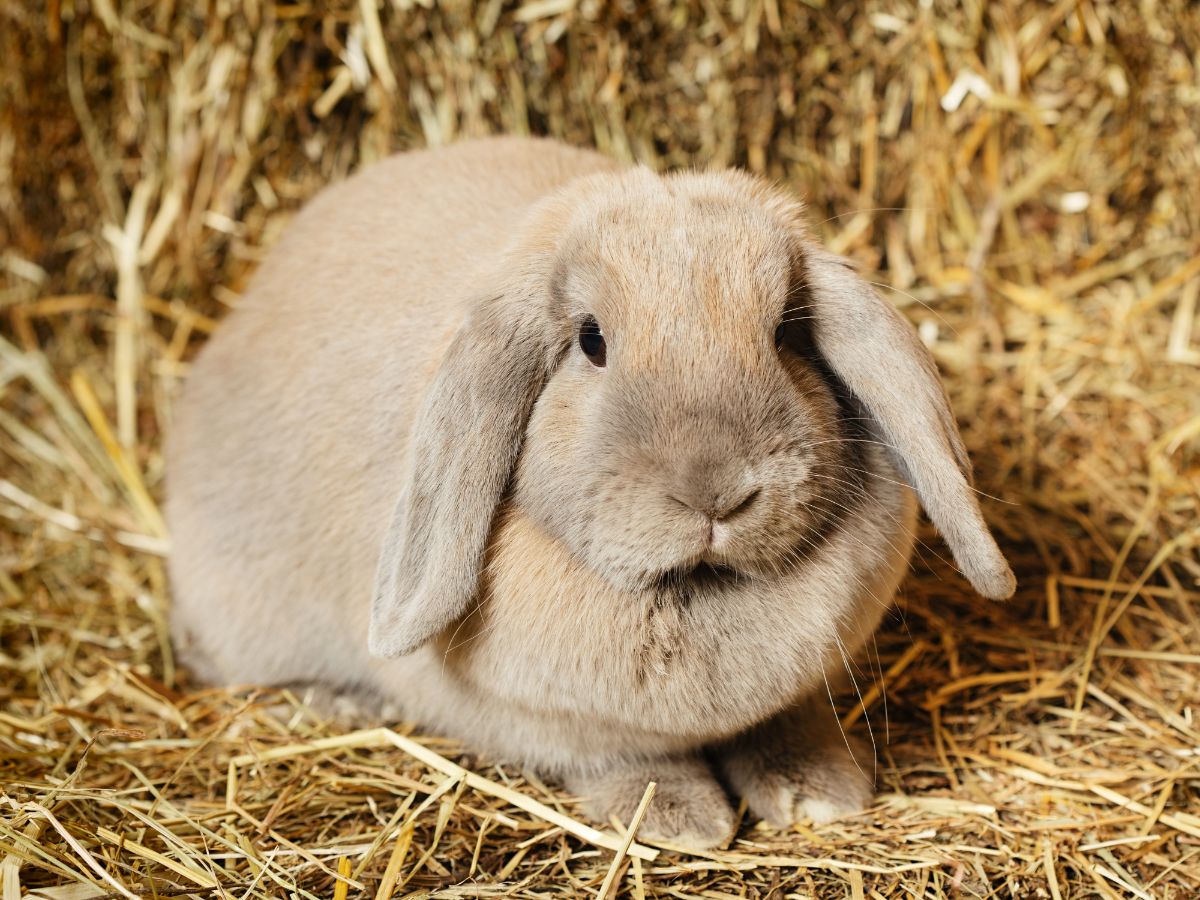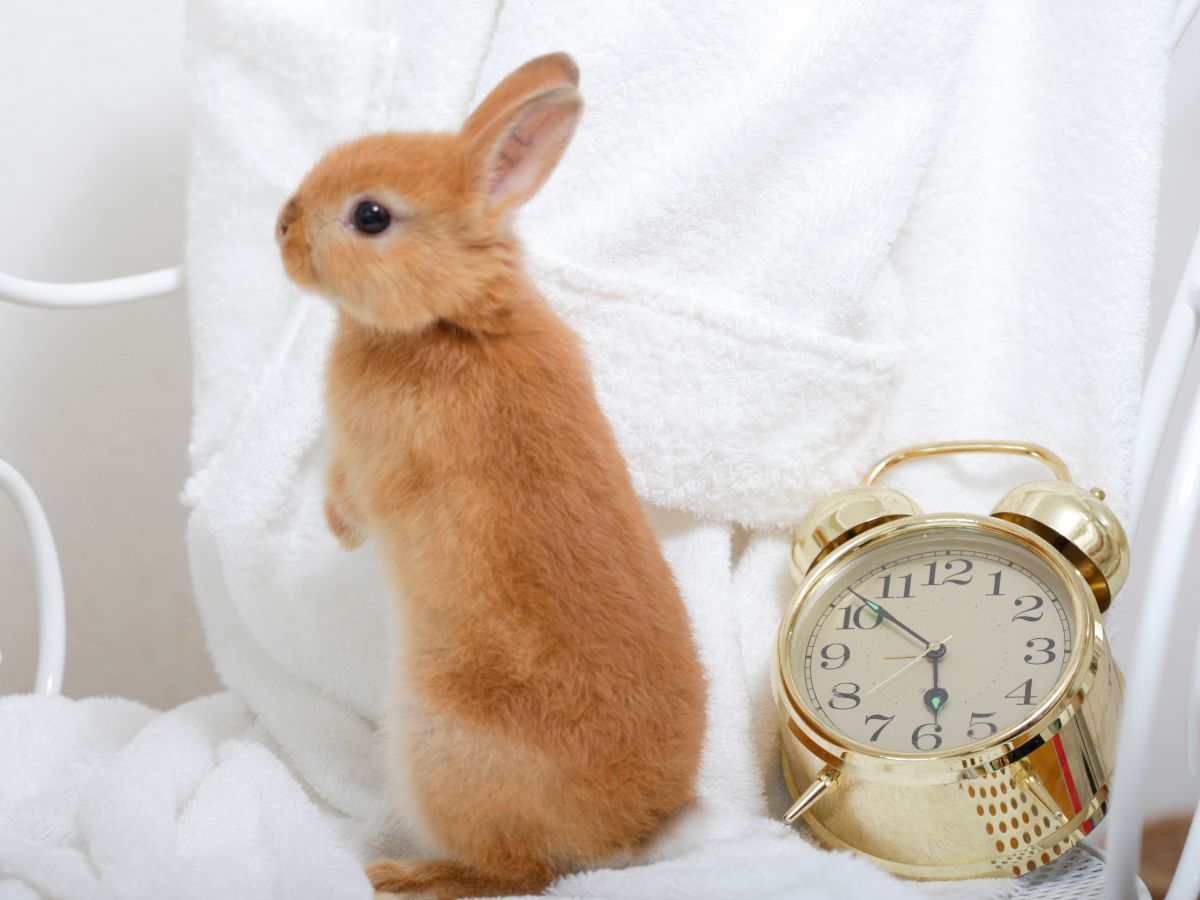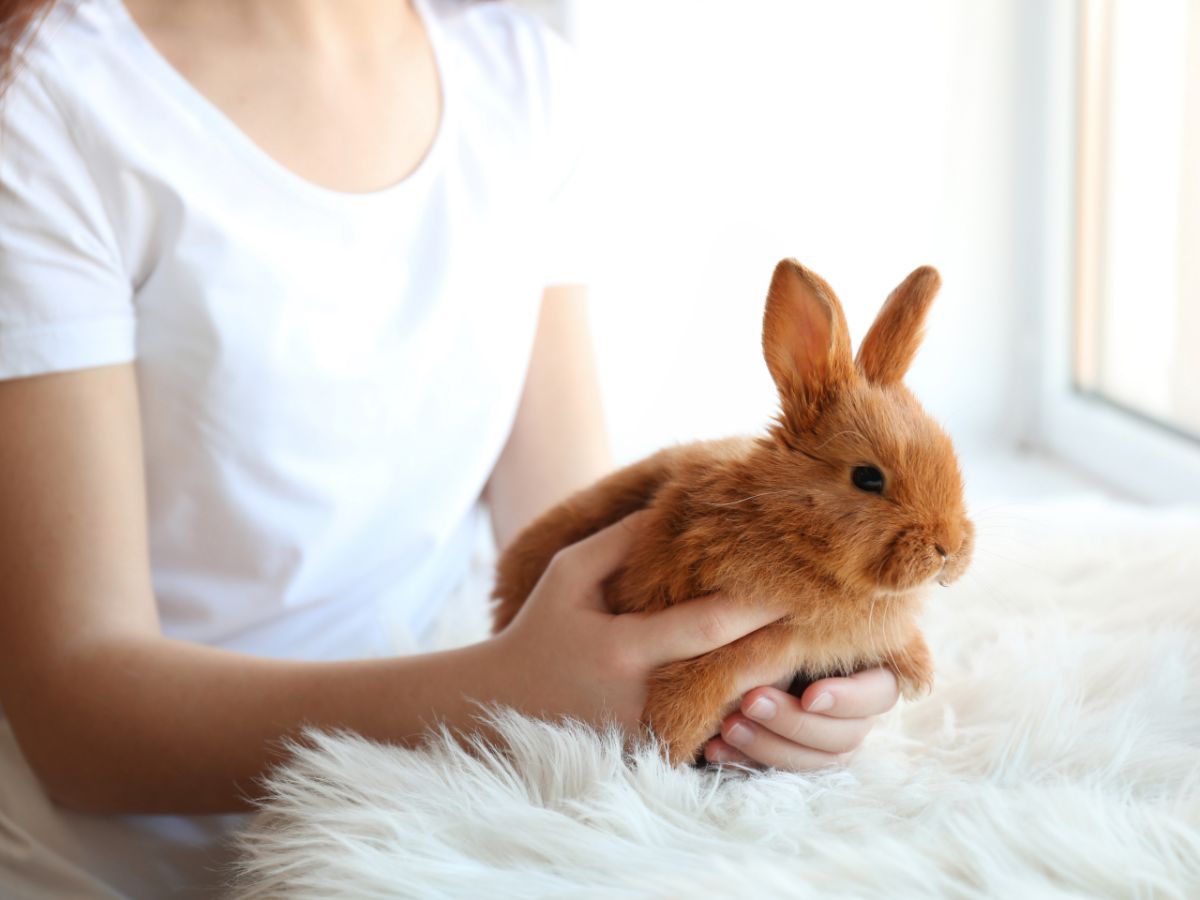These distinctive rabbits with their floppy ears are one of the most adorable pet rabbit breeds, but they may need some extra consideration, thanks to those cute hanging ears. If you’ve never had the joy of owning a lop-eared rabbit, you might be a little concerned about their needs. These irresistible bunnies still make good pets but will need a little more care in some respects, and we’ll cover all you need to know in our guide to caring for a lop-eared rabbit.
Lop-Eared rabbits require the same care as other pet rabbits, with extra attention paid to ears and teeth. Their long ears and short skulls can cause ear and dental issues if not checked and maintained. English Lops are prone to obesity, so monitor their diets to prevent weight gain.
If you’ve kept rabbits before, you’ll be glad to know that lop-eared care is similar, with a few caveats. And if this is your first time looking after a gorgeous lop-eared bunny, look at our other articles on rabbit care to get a good overview. In this article, I’ll highlight the special considerations of looking after a lop-eared rabbit to help you look after your new furry friend perfectly.
Contents
How to Care for Lop-Eared Rabbits
Care for lop-ears is much the same as standard rabbit care, but there are some extras you need to deal with, as lop-eared rabbits can be prone to a few things like ear infections and tooth issues. Their cute little faces come from the way the ears droop and the skull shape, so you need to pay additional attention to any tooth or ear problems they might get.
When you get your lop-eared rabbit, you should check with your vet if they have any particular concerns or advice about keeping your bunny’s ears clean. They might suggest a particular cleaning solution and demonstrate the correct way to clean your rabbit’s ears if necessary.
- Check and keep your lop-eared rabbit’s ears clean inside and out to prevent the build-up of dirt or mite infections.
- Lop-eared bunnies have shorter skulls than most rabbits, which can lead to overcrowded, skew teeth and can cause them dental problems
How to Clean Lop-Eared Rabbit Ears
Lop-eared rabbits aren’t born with floppy ears, but their ears flop forward as the young rabbits grow older. Their delicate ears need to be carefully cleaned because lop-ears cannot clean their ears themselves, resulting in ear infections. Cleaning wax from their ears is a job that is best done with two people. Remember only to use the ear cleaning medication that your vet has recommended.
It’s best to work in a place that is easy to clean up, like your bathroom. Gather your ear cleaning medication, a towel, and some clean cotton balls.
Use the towel to wrap your bunny securely. This will keep your rabbit calm and prevent him from kicking out or jumping from your lap. This part is easier if you have one person hold your rabbit while you clean their ears.
Work on one ear at a time, and do both ears in the same session.
You will need to carefully straighten your lop-eared rabbit’s ear so you can pour in the cleaning medication.
Hold a cotton ball at the bottom of your rabbit’s ear to stop the solution from overflowing and running into their face. You can use your fingers to gently stroke and massage the bottom of the ear for approximately half a minute. Keep them still to prevent them from shaking the solution out of their ear.
Clean out any loose ear wax or dirt using a cotton ball. When you’re done, your rabbit will shake his head to clear out any annoying drops left.

How to Care for Lop-Eared Rabbit Teeth
Your vet can also demonstrate how to check your lop-eared rabbit’s teeth. Thanks to the shortened shape of their skulls, lop-ears have a high percentage of problems with their cheek teeth and incisors.
Ensure your lop-eared rabbits have the correct diet to help wear down their teeth and avoid dental issues. Their primary diet (85%) should be grass-based hay like timothy hay, oat hay, and orchard grass. They need plenty to chew on, or you risk your rabbit’s teeth not grinding down and instead becoming overgrown, making it difficult and painful for them to eat.
You will also need to give them fresh green vegetables such as carrot tops, watercress, and lettuce. Fruits and other vegetables can be given in limited amounts.
You can check their teeth by gently rubbing your bunny’s cheeks to feel for any sharp edges or points from their teeth. Check their front teeth and incisors by carefully pulling their lips back.
If your bunny’s teeth are sharp or overgrown, and your rabbit is drooling or losing weight or has bad breath, you will need to take your rabbit to the vet to deal with infections or overgrown teeth.
Are Lop Eared Bunnies Good Pets?
I am often asked if lop-eared bunnies make good pets. Luckily, lop-eared rabbits are wonderfully friendly and come in various sizes and breeds, from the large French Lop, which can have ears over a foot long, to the Mini Lop, an excellent house rabbit. Even smaller are the diminutive True Dwarf Lops, who weigh in at 3.5 pounds and are popular children’s pets.
Lop-eared rabbits have a good reputation for being friendly, peaceful, and sociable. Because of this, rabbits do best if they are not kept alone. While some people keep lop-eared rabbits as single pets, they will need you to spend a lot of time with them to avoid loneliness and boredom.
I recommend keeping rabbits in pairs at least to avoid them becoming depressed. You’ll often find rabbits sold in bonded pairs because they do best with others of their kind. You can keep similarly sized rabbits with the same kind of personalities together, and that will still be better for your rabbit than keeping him alone.
One thing I’ve seen people do, which I don’t recommend, is keeping a lone rabbit with a lone guinea pig. While they are both social creatures who enjoy company, they do not make for good companions, and rabbits can often intimidate or injure guinea pigs.
Conclusion
Lop-eared rabbits will have the exact requirements as other rabbits, including companionship, suitable living areas, litter trays, fresh water, and the correct diet. However, this breed does need extra attention paid to its ears and teeth as they are prone to infections and overgrowth. Some breeds of lop-eared rabbits are prone to over-eating, so keep an eye on their food and activity to prevent further health issues.




